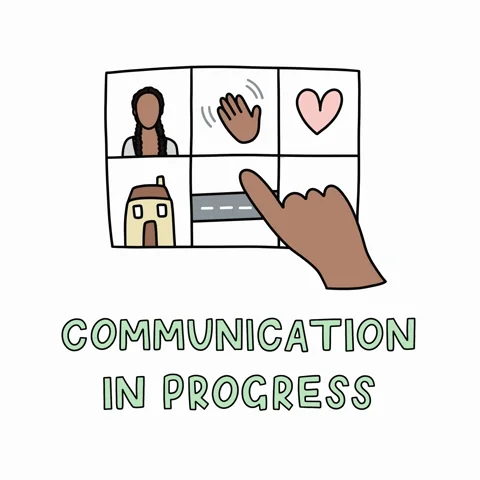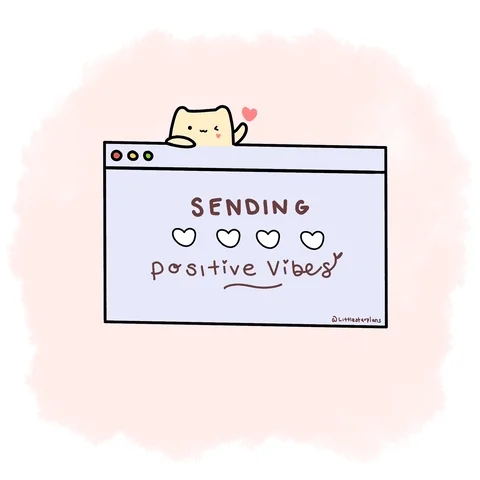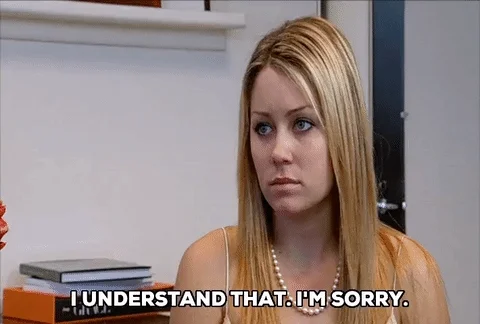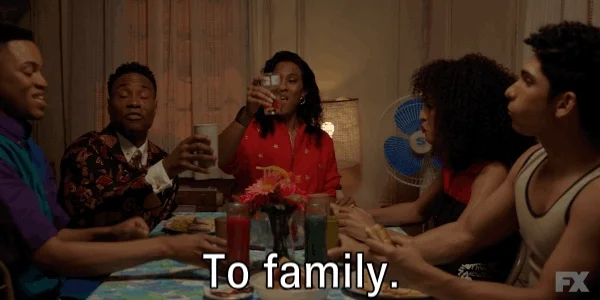Communication is something we do all day every day, but it's not easy to do well!
Add family relationships and dynamics to the mix, and it can be even more challenging.

Mom says to her college daughter, Nicole, "You never call me anymore."
Mom means: I miss you!
Nicole hears: Mom thinks I'm a selfish daughter.

Nicole says, "I'm too busy."
Nicole means: I wish you understood how hard school is for me!
Mom hears: She doesn't want to make time for me.

One relationship, one interaction that seems simple — yet different needs, feelings, and interaction styles can cause communication breakdowns.
But don't despair! Family communication and difficult conversations can get easier when you use strategies to:
understand your own thoughts and behaviors
express yourself clearly
listen deeply
read and understand others' behaviors and feelings
gather your thoughts and plan ahead
Did you know?
Make Your Messages Clear
 Communicating our thoughts, feelings, and opinions is the cornerstone to every relationship. Most of the time, we're both sending and receiving messages.
Communicating our thoughts, feelings, and opinions is the cornerstone to every relationship. Most of the time, we're both sending and receiving messages.
And we want to show our family members that we value them and care about their concerns — even if we don't always understand them.
Express yourself clearly to help them understand, and listen and interpret carefully so you understand them.

Support Understanding
Some things to keep in mind when on either side of the communication:
Consider the heart of the comments — is the person hurt rather than angry?
Avoid extremes like "always" and "never."
Focus on the current situation — focusing on past issues confuses the current problem.
Show respect — don't dismiss a concern.
Use a kind tone — attacking or shaming shuts the other person off.
Keep a neutral attitude — defensiveness or blame can end the conversation.
Have compassion — for yourself and the other person.
⚡ Practice Communicating Clearly
Think back to Nicole and her mom. What could Nicole say that could help the two of them understand each other better?

I'm sorry, I'm just overwhelmed with school.

Mom, please don't be so needy.

I want to talk to you, I just have to spend a lot of time studying.

You always try to guilt me and I don't like it.
Quiz
Which responses might work better for Nicole to say to her mom?
Practice Self-Awareness
 Photo by Arun Prakash on Unsplash
Photo by Arun Prakash on UnsplashCheck in with yourself when you're about to have a conversation with your dad, cousin Sadie, or your Aunt Martha.
Are you hungry, tired, or stressed out?
Do you have a history of communication problems with this person?
Are you annoyed, frustrated, or triggered by this person?
How do you feel about the topic?
Will your personal experience with the topic prevent you from listening to their experiences?

If you think it might be a challenging conversation, get centered before you engage with your family member.
Take deep breaths in and long exhales out to calm yourself.
Speak to yourself: "I am calm, I am in control, I can make this moment better, I can smile through this."
Tell yourself to "stop, be kind, be mindful" if you feel negatively toward the other person.
Think compassionately about the other person and yourself.
Be an Active Listener

All people want to be heard and understood. Active listening includes techniques to show you are listening and receiving their thoughts and feelings, and that you value what they are communicating to you.
How to Be a Better Active Listener:
Use Body Language
make eye contact and face the person
lean closer
nod to affirm that you're following
Be Attentive
put down your phone
turn off your ringer
close your book or your laptop
Read the Person
listen deeply to words, silences, and sighs
watch their facial expression and body language
Respond
refrain from offering advice
paraphrase what you heard to check if you understand

Use Language to Check for Understanding
"What I hear you saying is...."
"It sounds like..."
"What I think I hear is..."
"Help me understand what you mean when you say..."
"I sense you're feeling..."
"Tell me more about..."
Subscribe for more quick bites of learning delivered to your inbox.
Unsubscribe anytime. No spam. 🙂
Apologize Effectively

We all do things we regret, whether on purpose or by accident. But how we handle it makes a big difference.
Apologies go a long way to repairing a rift with a loved one. Apologize to ease a situation, right a wrong, and express remorse.
How to Make a Good Apology:
Acknowledge what the other person is telling you about your behavior.
Admit that you were wrong and use specifics.
Be sincere.
State or ask how you can make it better or fix the problem.
Put your pride to the side.

⚡ Practice How to Apologize
Your brother Derek comes to tell you he's upset that you broke his computer keyboard. How can you respond to help the situation?

Good thing you can easily get a new one!

I'm sorry, I know you need it for school.

I was careless and I dropped it.

I'll buy you a new one.
Quiz
What would Derek want to hear? Select all that apply.
Disagree Respectfully

We all have different thoughts and opinions — that's what makes us unique and interesting. Expressing our views without offending others or creating conflict will keep relationships strong.
Disagree in a way that you won't need to apologize for later.
How to Disagree Effectively:
Remain calm.
Use a polite tone.
Validate their point of view.
Share specifics of your point of view.
Use "I statements" to make your points.
Show appreciation to the person for sharing and for listening to you.
Take a break if it gets heated.
⚡ Practice How to Disagree
Nazim is having a holiday meal with his family. His grandfather mentions who he's going to vote for in the upcoming election. Nazim is liberal and his grandfather is conservative.
What can Nazim say to make the communication positive?

I've only heard a few things about her, but I doubt she has a good chance.

I've heard negative things about her, are you sure you want to vote for her?

I like one of her policy ideas, but I'm not sure about a few others. Would you explain them to me?

I don't understand why she would promote that policy, I find it immoral.
Quiz
Which comment will facilitate a positive communication between Nazim and his grandfather?
Take Action

Help your family find better ways to communicate!
Lead by example — use your self-awareness strategies and active listening skills to help you through these challenging conversations with your family.
Your feedback matters to us.
This Byte helped me better understand the topic.
